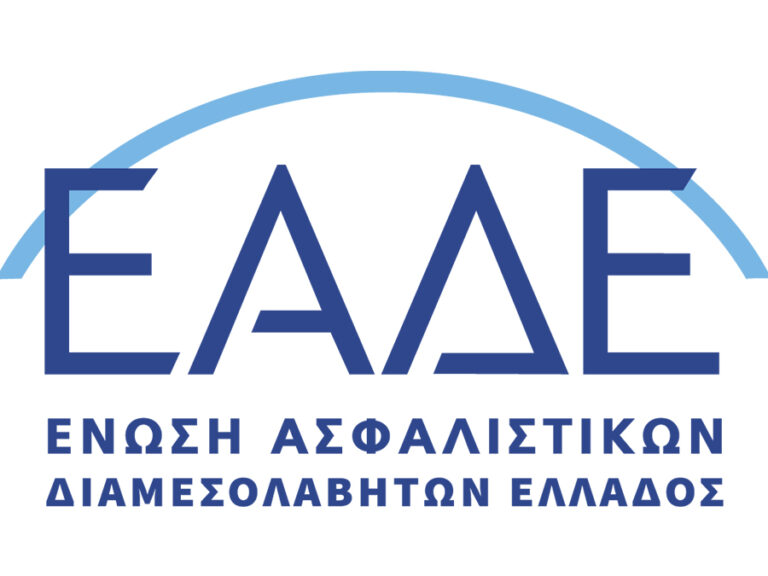ΕΑΔΕ προς ευρωβουλευτές και Υπουργείο: Υποστηρίξτε την αναβολή της IDD

Το αίτημα για αναβολή της εφαρμογής της IDD έχει προωθήσει ήδη η Ένωση Ασφαλιστικών Διαμεσολαβητών Ελλάδος προς τους Έλληνες Ευρωβουλευτές που μετέχουν στην αρμόδια Επιτροπή του Ευρωπαϊκού Κοινοβουλίου και προς το Ελληνικό Υπουργείο Οικονομικών.
Η ΕΑΔΕ προώθησε το πανευρωπαϊκό αίτημα του BIPAR, που εκπροσωπεί Ασφαλιστικούς Πράκτορες, Μεσίτες και Χρηματοοικονομικούς Διαμεσολαβητές των Χωρών της Ευρωπαϊκής Ένωσης, για αναβολή κατά 1 έτος της Οδηγίας IDD, που μέλλει να ισχύσει από 23 Φεβρουαρίου 2018.
Η παράταση κρίνεται αναγκαία λόγω της καθυστέρησης της οριστικοποίησης των κειμένων του Επιπέδου 2 της IDD και της νομικής αβεβαιότητας που πυροδοτείται εξ αυτής, με αποτέλεσμα όλοι οι Ασφαλιστικοί Διαμεσολαβητές στην Ευρωπαϊκή Ένωση να μην έχουν τον απαραίτητο χρόνο για την έναρξη της προετοιμασίας για την ένταξη στο καθεστώς που ορίζει η IDD.
Η ΕΑΔΕ παρεκάλεσε τους Έλληνες Ευρωβουλευτές να υπερασπισθούν το αίτημα αυτό ενώπιον της Εσθονικής Προεδρίας και της Κομισιόν.
Να θυμίσουμε ότι ήδη από τον Ιούνιο η BIPAR είχε εκφράσει τις αντιρρήσεις της όσον αφορά το χρονοδιάγραμμα εφαρμογής της IDD (δείτε εδώ σχετικό δημοσίευμά μας), ενώ χθες και η Insurance Europe ανακοίνωσε ότι υποστήρίζει το αίτημα για αναβολή (δείτε εδώ).
Παρακάτω παραθέτουμε το κείμενο της BIPAR που εξηγεί τους λόγους που πρέπει να αναβληθεί η εφαρμογή της Οδηγίας.

WHY IS A ONE YEAR DELAY OF THE APPLICATION OF THE INSURANCE DISTRIBUTION DIRECTIVE (IDD) NEEDED?
-
THE FACTS
The Insurance Distribution Directive (IDD) and its level 2 texts are to be implemented at national level by 23 February 2018.
Its level 2 texts have just or not yet been adopted: The IDD implementing Regulation on IPID (Insurance Product Information Document) was only adopted in August 2018.
The two IDD Delegated Regulations on Product Oversight and Governance (POG) and on IBIPs – were only adopted on 21 September by the Commission and presented to the European Parliament (EP) and the Council for scrutiny. The two IDD Delegated Regulations can only enter into force if no objection is expressed by the EP and the Council within the 3 months of the scrutiny process (extendable by a further three months).
Even if the EP and Council agree to an early non -objection process, the Delegated Regulations could only enter into force end of October at the earliest.
Because of the delay in the finalisation of the final level 2 IDD texts and therefore because of the lack of legal certainty it triggers, insurance intermediaries in the EU could not begin to prepare for the implementation of the IDD and do therefore need more time to apply it.
Insurance intermediaries are also facing an unprecedented wave of EU texts to be implemented by 2018.
BIPAR is therefore calling for a one year delay of the application of the IDD
-
THE REASONS FOR A DELAY
Legal uncertainty triggered by delayed procedure
Even if the EP and the Council choose, in a responsible manner, not to object to the two IDD Delegated Regulations and therefore allow that they enter into force by early November, this leaves too little time to the industry to comply with the IDD level 2 texts on time.
Because of the legal uncertainty triggered by the delay in the finalisation of the IDD Level 2 texts, the industry, and in particular SME insurance intermediaries, could not begin implementing the significant structural changes that the IDD necessitates.
IDD level 2 texts are of significant importance for businesses. But SMEs – most of insurance intermediaries are SMEs – cannot, financially and time-wise, afford planning the necessary technical, organizational and IT changes investments on the basis of draft level 2 texts that could be amended or further specified in the final rules.
They have to wait until the final texts are adopted to begin the application of the texts and to therefore fail to meet the IDD implementation deadline.
IT necessary changes
The process of insurance distribution has been automated for many years. The IDD triggers significant and complex changes to IT systems on which intermediaries rely to drive business. They rely on a limited number of software providers to carry the necessary changes. IT planning and budgeting is scheduled months if not year in advance.
Changes triggered by IPID requirements
Under the IDD, prior to the conclusion of a contract, the insurance intermediary must provide the customer with the relevant information about a non-life insurance product by way of a standardized insurance product information document (IPID).
To ensure a correct implementation of this important requirement for the consumers, the industry needs sufficient time to test the IPIDs. This means lengthy preparatory work to be done by insurers and intermediaries, IT design and development etc.
This work could only start in August when the IPID Implementing Regulation was published in the OJ of the EU.
Changes triggered by POG requirements
The IDD introduces new requirements in terms of product oversight and governance to prevent mis-selling, These are keys for consumers’protection. To ensure a correct implementation of these requirements, insurance intermediarie will need for ex.to have “product distribution arrangements” in place to obtain from insurers all appropriate information on the insurance products they offer. These need to be set out in writing and approved by the board before being implemented by the staff of the firm.
The preparation of these arrangements that will be long and complex could not even start because of the lack of the final level 2 text on POG.
Changes triggered by IBIPs requirements
The IDD introduces new requirements for the distribution of insurance based investment products (IBIPs). Intermediaries will have to put in place new organisational and administrative arrangements, new remuneration schemes and suitability and appropriateness tests etc. This requires at least a year to implement.
Besides, in many EU countries IBIPS requirements will also have an impact on work contracts of intermediaries’ employees and will necessitate individual and collective long negotiations.
Unprecedented wave of EU texts (GDPR, MIFID II, PRIPs etc..) to be implemented and applied by insurance intermediaries, who are mostly SMEs
That is why a delay of one year in the application of the IDD needs to be considered in light of that reality. This would allow a complete and thorough application by insurance intermediaries which would be in the interests of consumers.
Like in MiFID II (Article 93), Member States should be allowed to apply the IDD measures one year after the adoption and publication of their respective laws, regulation or administrative provisions necessary to comply with the IDD.
September 2018







